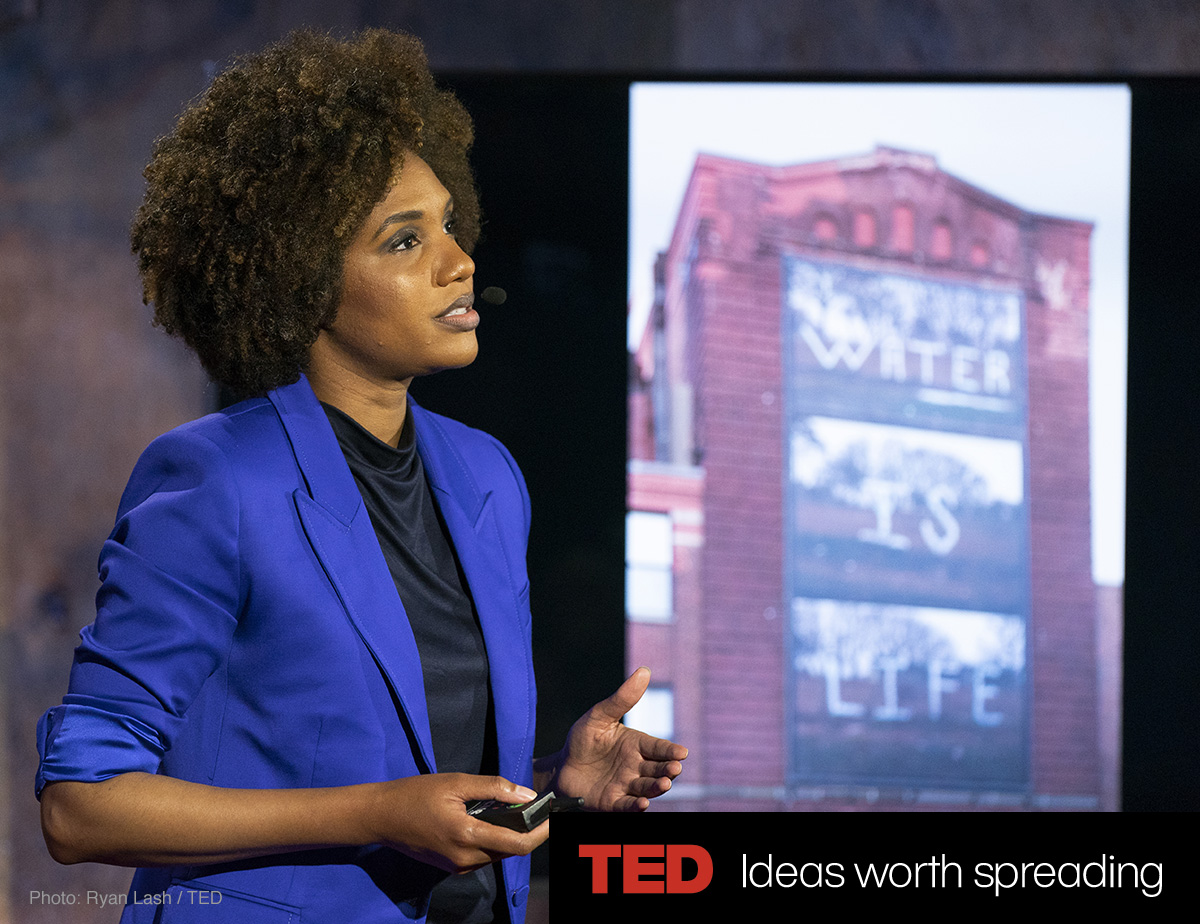A creative solution for the water crisis in Flint, Michigan
LaToya spent five months living in Flint, Michigan, documenting the lives of those affected by the city's water crisis for her photo essay Flint is Family. As the crisis dragged on, she realized it was going to take more than a series of photos to bring relief. In this inspiring, surprising TED talk, she shares the creative lengths she went to in order to bring free, clean water to the people of Flint.
Read more • Watch LaToya's talk on TED.com


How I Got Over: Vision and Justice in Racialized America
Hosted by Rebecca Carroll
WNYC producer for special projects on race
Friday, December 09, 2016
For all the pain, anxiety and devastation caused by the widely circulated video footage of black lives being literally extinguished, we are also bearing witness to a pronounced moment of black cultural ascension.
Photographers LaToya Ruby Frazier and Carrie Mae Weems, with Harvard University art history professor Sarah Lewis, engage in a discussion on celebrating and advancing visual literacy around race, and what it feels like to be American and black during this dichotomous time of triumph and tragedy.
Courtesy of: The Green Space at WNYC
Brilliant photographer captures daily life during the Flint water crisis
In a short film by Frazier titled Flint is Family, Shea Cobb, a 32-year-old mother and lifelong Flint resident, explains how ordinary tasks like brushing teeth and planning dinner have been complicated by lead-poisoned water. A singer, songwriter, and poet, Cobb patches together a series of jobs — bus driving and hair braiding — to make ends meet for her family. It’s a job made more arduous when the water is poisoned. “It’s the hustle that gets us through,” Cobb says.
Read more…
By Aura Bogado
Courtesy of: Grist.org and ELLE.com
MacArthur fellow captures the town that survived
PBS News Hour’s Jeffrey Brown talks with LaToya Ruby Frazier about her art and activism.
“Braddock, Pennsylvania, was once a thriving steel town before the town’s industry collapsed. It’s where LaToya Ruby Frazier grew up, like her mother and grandmother before her, and it’s where the visual artist and 2015 MacArthur fellow has returned to document the change her community has endured.”
Courtesy of PBS News Hour